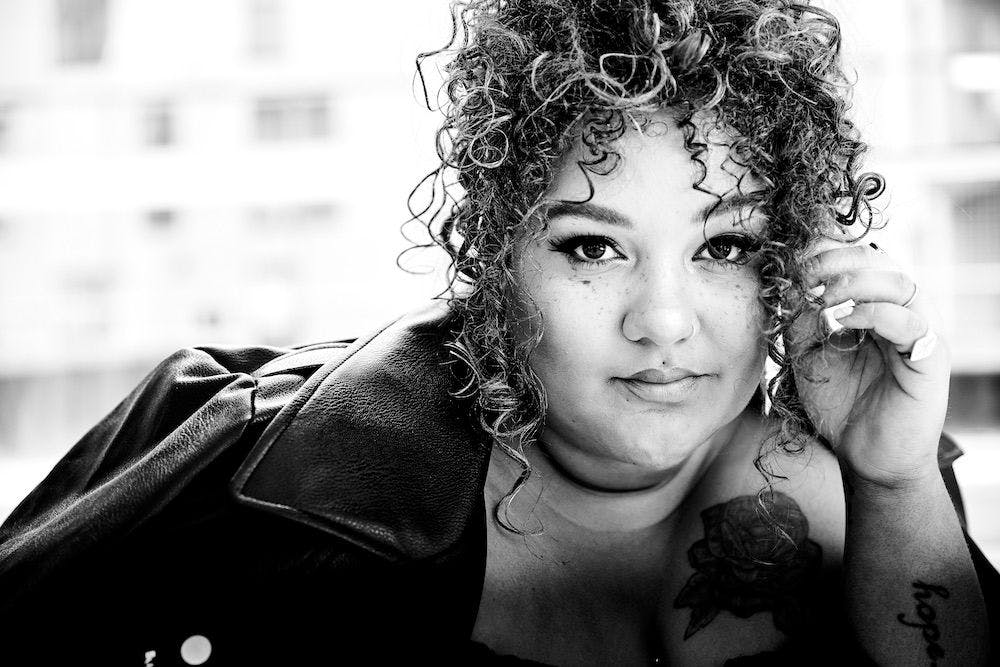Rediscovering Your Sexual Self, Post-trauma with Grace
updated on Oct 4, 2019

Raw and real, trainee counsellor, author and self-belief boss, Grace Victory, explores tough topics and shares her personal insight each month
I wanted this piece to be empowering, and maybe even uplifting, because writing this stuff makes me sad – and at times resisting sadness is my default way of protecting myself.
Delving into your past is never easy, whether you’re yet to process it, or you’ve healed. So when I decided to talk about sex after sexual trauma, I definitely wanted to skim the surface, in the hopes I wouldn’t feel while writing. But that goes against everything I believe in, and sometimes speaking the vulnerable, raw, and ugly truth, is exactly what you need to release parts of the pain.
So this is my sadness.
But this is also my strength.
Although I’d experienced abuse of power and control for pretty much my entire childhood, there is one pivotal moment, from when I was 16, that changed my life forever. This incident took away the very little voice I had, and it confirmed to me all the intrusive thoughts I believed about myself.

I would tell myself over and over that I was damaged goods, that I wasn’t worthy of anything but abuse, and that I deserved it. At one point I even convinced myself that it didn’t happen; I had made it all up in my head. My rape broke an already shattered young girl, and has shaped pretty much all of my sexual experiences since.
Disassociating is something I often did during sex. It was a way for me to zone out but look like I was participating, and maybe even enjoying myself. I’d see myself on a cloud, or a beach, or as another life form. It’s funny to write this now, but once I saw myself as an alien!
When I’d disassociate, I’d feel floaty, light, and calm. I would lose all feeling physically and emotionally, which would result in faking an orgasm, and not really knowing what had just happened. It’s only in the past year or so that I am remembering many of my sexual experiences and, if I’m honest, a lot of my life in general.
As a child and a teenager, I learned how to forget my memories, so I wasn’t reminded of the pain. But with therapy, I am learning how to not only honour my feelings, but to actually remember what I’ve experienced, and integrate those memories.
I would love to say that healing my issues with intimacy and sex has been easy, but honestly, doing this work has been the hardest fucking thing of my life.
There are some parts of healing that are pretty empowering and fun. Things like learning how high my sex drive is, and wanting to hump my boyfriend every day, feeling heard and safe while having sex, and asking for what I want without feeling guilty.
All of these things make me so proud, and remind me of how far I’ve come. But, as we all know, healing isn’t linear...
Before I could stop zoning out and disassociating, I had to visit so much of my pain with my therapist. Telling him my fears, my memories, and my pain evoked unimaginable shame. I cried and cried, and I think I’m still crying now. I’ve cried for my 16-year-old self. I’ve cried for blaming her, and I’ve cried for how long she kept it a secret. I’ve been learning how to be present in life, so when I have sex now, I can be in the moment.
I am truly thankful that from my greatest sadness came my greatest strength
Personally, it’s also been about unlearning misogyny, and letting go of the notion that sexual pleasure is only for men. That you don’t need to perform during sex, or pretend to be a porn star (you can but it’s not a requirement). You can be yourself, and show up regardless of your past, body size, or anything else that you believe makes you less than.
I’ve had to face my fears and recognise my projections in order to become self-aware. Accepting my experience has enabled me to begin to move past it, and understand that what happened to me, doesn’t define me.
Trauma and sexual trauma often affect our attachments, identity, sense of self, and stress receptors – to name just a few. And all of these things can impact our sex lives, so re-learning how to engage our sexual self in a way that is individually healthy, can take years. Patience, compassion, and kindness make the process, and journey, a lot easier.
My voyage of sex after sexual trauma isn’t over. Some days it’s an uphill climb, and some days I am flying, but no matter what, I will remain in my power and trust this process. I am truly thankful that from my greatest sadness came my greatest strength. Love Grace x
Come back next month for more from Grace!

